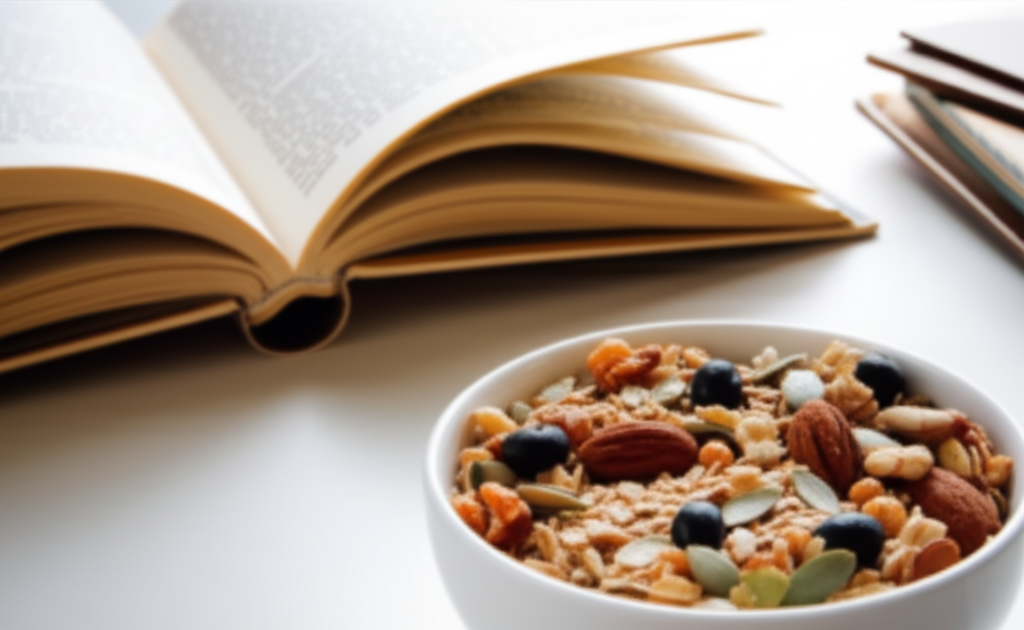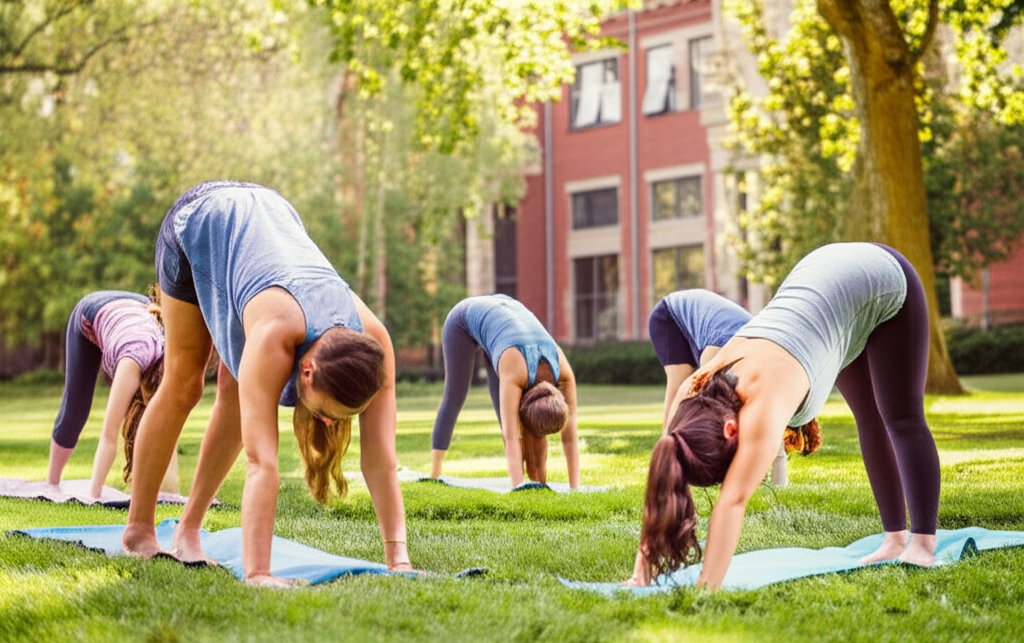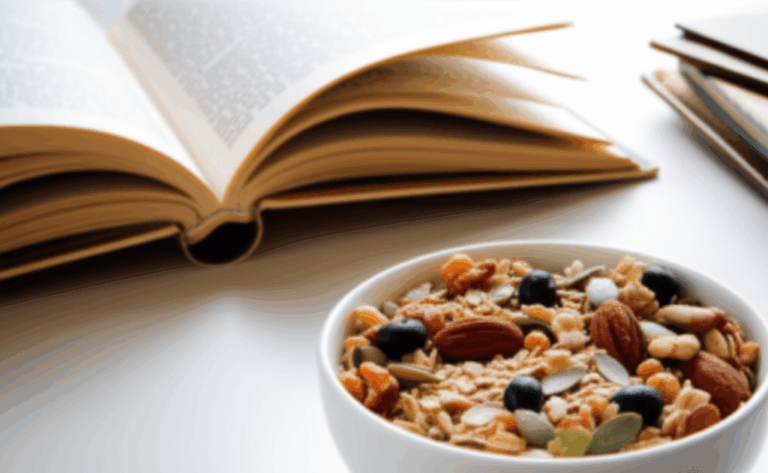Navigating student life often feels like a constant juggle: classes, deadlines, social commitments, and perhaps a part-time job. In the midst of this whirlwind, it’s easy for personal well-being, especially healthy eating, to take a backseat. However, your health is the bedrock of your academic success and overall happiness. Prioritizing a balanced lifestyle—encompassing nutrition, sleep, physical activity, and mental health—isn’t just about surviving your student years; it’s about thriving and building lifelong habits that will serve you long after graduation.

Fueling Your Mind and Body: Healthy Eating for Students
Eating well provides the essential fuel your brain and body need for demanding tasks and can significantly improve academic performance. Making informed food choices is a crucial step toward a healthier student life.
Smart Choices in the Dining Hall and Beyond
For many students, university dining halls are a primary food source. Being strategic here can make a big difference:
- Start with Breakfast: Don’t skip the most important meal of the day. A breakfast rich in fiber and protein fuels your brain and prepares you for the day. Options like oatmeal, yogurt, fruit, or a quick breakfast bar are great.
- Balance Your Plate: Aim for a plate that’s half fruits and vegetables, a quarter lean protein (like chicken, fish, beans, or tofu), and a quarter whole grains.
- Be Mindful of Portions: “All-you-can-eat” buffets can lead to overeating. Listen to your body’s hunger and fullness cues.
- Limit Processed Foods: Cut down on fast food, sugary snacks, and sodas, which are often high in unhealthy fats, sugars, and sodium. When dining out, look for terms like “baked,” “grilled,” or “steamed,” and ask for sauces on the side.
Budget-Friendly Nutrition: Eating Well Without Breaking the Bank
Eating healthy doesn’t have to be expensive. With a little planning, you can nourish your body without draining your student loan.
- Meal Prep: Preparing meals in advance can help you maintain a healthy diet and avoid unhealthy fast food temptations. Try preparing at least one meal per day for the week.
- Shop Smart: Look for store brands, which are often cheaper than branded products.
- Utilize Frozen Produce: Frozen fruits and vegetables are often more affordable, have a long shelf life, and are just as nutritious—sometimes even more so—than fresh varieties, as freezing preserves nutrients.
- Bulk Up Meals: Add affordable ingredients like beans, lentils, chickpeas, and tofu to curries, pasta sauces, and stir-fries to make meals more filling and economical.
- Affordable Meal Ideas: Consider recipes like slow cooker coconut curry chicken, chicken quinoa soup, peanut butter noodles with tofu, pasta e fagioli, or healthy chicken stir-fry. Simple macaroni and cheese, cheesy ramen, or sloppy joes can also be made affordably.
Quick & Healthy Snack Ideas
Keeping healthy snacks on hand prevents reaching for unhealthy options during study sessions or between classes. Aim for snacks that combine at least two macronutrients (protein, carbohydrates, and healthy fats) for sustained energy.
- Fruits and Vegetables: Apples, bananas, oranges, berries, carrot sticks, celery sticks, and bell peppers are easy to grab. Pair them with peanut butter, hummus, or a low-fat dip for added protein and healthy fats.
- Dairy/Alternatives: Yogurt (especially Greek yogurt for higher protein), cheese sticks, or cottage cheese with fruit.
- Whole Grains: Whole-grain crackers with hummus, rice cakes, or air-popped popcorn.
- Nuts and Seeds: Trail mix (check for school nut policies), roasted chickpeas, or sunflower and pumpkin seeds. Hard-boiled eggs are also a great protein source.
Hydration: Your Essential Study Buddy
Staying hydrated is critical for cognitive function, concentration, and overall health.
- Drink Plenty of Water: Aim for at least 2 to 3 liters (6-8 glasses) of water daily. Carry a reusable water bottle to remind yourself to drink throughout the day.
- Limit Sugary and Caffeinated Drinks: Excessive caffeine can be unhealthy, and sugary drinks contribute calories without much nutritional value. Opt for water, lower-fat milk, or “no-added-sugars” beverages instead.

The Power of Rest: Prioritizing Sleep for Academic Success
Sleep is not a luxury; it’s a fundamental pillar of health that directly impacts your academic performance, mental health, and immune system.
Why Sleep Matters for Students
- Academic Performance: Adequate sleep is crucial for memory consolidation, focus, attention, and problem-solving skills. Students who get enough sleep perform better on memory and motor tasks.
- Mental Well-being: A consistent sleep schedule helps prevent or alleviate stress, anxiety, and depression. Without rest, the mind struggles to stabilize emotionally.
- Physical Health: Sleep rejuvenates the body, supports immune strength, and regulates vital biological processes. Lack of sleep can weaken the immune system, making students more susceptible to illness.
Creating a Student-Friendly Sleep Routine
Many college students get less than the recommended 7-9 hours of sleep per night. To improve your sleep hygiene:
- Stick to a Schedule: Try to go to bed and wake up at roughly the same time each day, even on weekends. Consistency helps regulate your body’s internal clock.
- Create a Sleep-Friendly Environment: Make your room dark, quiet, and cool. Earplugs or a white noise machine can help combat noise.
- Limit Screen Time: Cut back on screen time (phones, laptops, TV) at least an hour before bed. The blue light can interfere with melatonin production, a hormone that makes you sleepy.
- Avoid Stimulants: Limit caffeine, alcohol, and heavy meals close to bedtime.
- Keep Your Bed for Sleep: Avoid doing work or studying in bed, as this can make it harder to associate your bed with rest.

Move Your Body, Boost Your Brain: Physical Activity for Students
Physical activity is a powerful tool for maintaining both physical and mental health. It doesn’t require hours at the gym; small, consistent efforts can make a big difference.
Finding Time for Fitness
- Integrate Movement: Take the stairs instead of the elevator, walk or bike to class, or park further away.
- Short Workouts: Even 10-minute workouts can be beneficial. Consider quick bodyweight exercises in your dorm room or using a 7-minute workout app.
- Utilize Campus Resources: Explore your university’s recreation center, which often offers various activities and classes.
- Find What You Enjoy: Choose a form of exercise you genuinely like, whether it’s yoga, dancing, team sports, or simply walking in nature.
Benefits Beyond the Physical
Regular exercise does more than just keep you physically fit:
- Stress Reduction: Exercise is an excellent way to reduce stress, anxiety, and anger.
- Mood Enhancement: Physical activity releases endorphins, which can improve your mood and overall sense of well-being.
- Improved Focus: Staying active can also sharpen problem-solving skills and improve focus, aiding academic performance.

Nurturing Your Inner Self: Student Mental Well-being
College can be a demanding time, and managing stress and maintaining good mental health is paramount.
Stress Management Techniques
- Mindfulness and Relaxation: Practice mindfulness activities like breathing exercises, visualization, and meditation. Apps like Headspace or Calm offer quick sessions.
- Creative Outlets: Engage in activities like music, drawing, or writing to express emotions and relieve stress. Journaling can help process feelings and organize thoughts.
- Set Boundaries and Routines: Create a structured schedule for studying, working out, and sleeping to reduce overwhelm. Set limits on work hours to allow for fun and relaxation.
- Take Breaks: Regular breaks during study sessions can boost productivity and lower stress. Use them to stretch, walk, or grab a healthy snack.
- Stay Organized: Use planners or apps to keep track of assignments, breaking larger projects into smaller, more manageable tasks.
- Express Gratitude: Focusing on things you’re grateful for can positively impact your mental health.
Building a Support System
You don’t have to navigate challenges alone.
- Connect with Others: Spend time with trusted friends and mentors. Building positive relationships and a strong support system can provide emotional support and ease feelings of isolation.
- Seek On-Campus Support: Most universities offer free resources such as counseling services, wellness programs, and health clinics. Don’t hesitate to reach out if you’re struggling.
By embracing these healthy living principles, you can not only survive the rigors of student life but truly flourish, setting the stage for a healthy and successful future.







